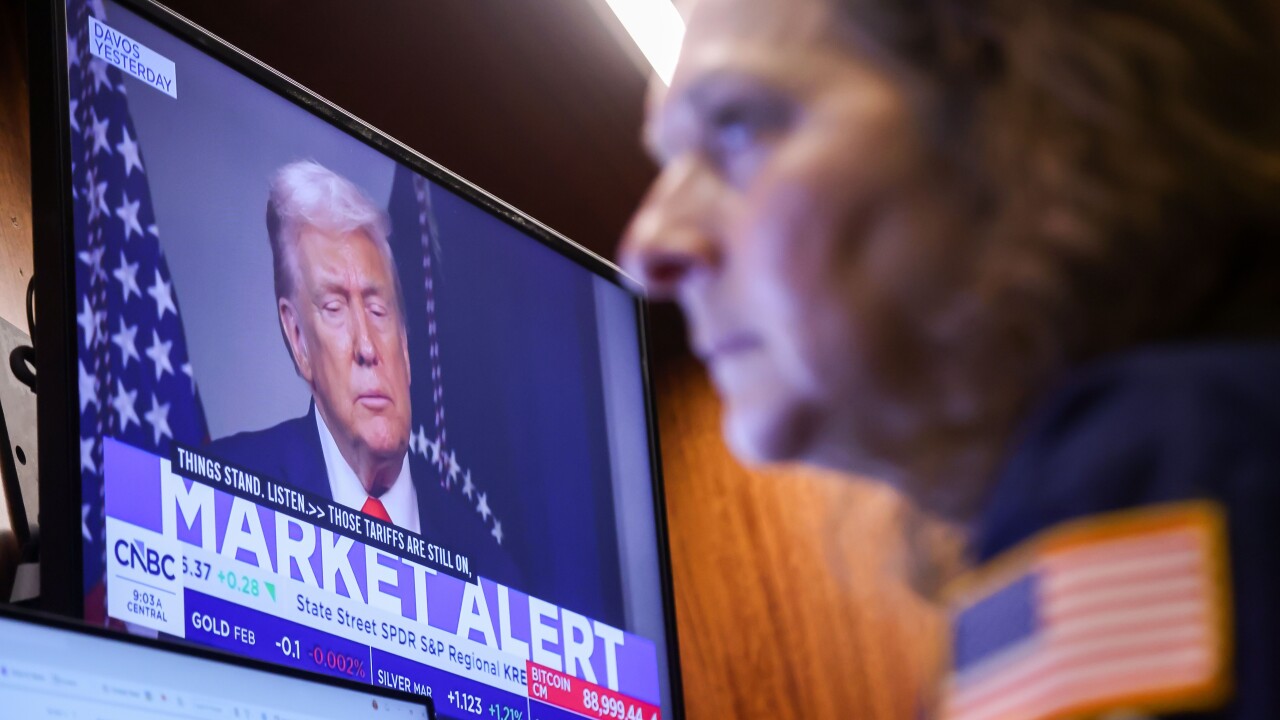- Key Insight: Tricolor's business model differed from other auto finance companies, which could have contributed to its problems.
- What's at Stake: It's unclear how many more lenders may take losses due to connections with Tricolor, or on subprime auto loans.
- Forward Look: A former Tricolor lawyer said the federal government is investigating the situation.
UPDATE: This story includes information from the FBI's response to a request for comment.
A subprime auto lender's bankruptcy due to alleged fraud is
Origin Bancorp, based in Northern Louisiana, said Thursday that it moved into non-accrual status the $30.1 million of loans it had made to the Dallas-based auto lender, Tricolor. Although the loans are currently performing, the $10 billion-asset bank said its decision was made in connection with Tricolor's move to liquidate its assets.
Tricolor, which carved out a niche in lending to undocumented Hispanic immigrants looking to buy used cars, filed for Chapter 7 bankruptcy on Wednesday.
Renasant Bank, another creditor in the case, said Thursday afternoon that it also placed $22.5 million connected to a Tricolor loan in non-accrual status, though the loan had been performing. The $27 billion-asset company added that it was "taking steps to assess and secure its collateral" and protect its interest while it gathers information.
Triumph Financial's banking subsidiary, TBK Bank, also said Thursday afternoon that it is the agent bank for a $60,5 million loan facility, of which TBK holds roughly $23 million, for which Tricolor is the lead borrower. The loan is secured by collateral, including a first-lien security interest in vehicle inventory.
"The bank is working to secure and consolidate its vehicle collateral," the Dallas-based bank, which has $6 billion of assets, said in its filing.
Fifth Third Bancorp, another creditor in Tricolor's bankruptcy case, logged a $200 million credit loss on a loan connected to the auto lender. Fifth Third CEO Tim Spence chalked it up on Wednesday to "significant fraud."
Spence said at an industry conference that Fifth Third became aware of the issue last week, and has now determined the loss to be a "one-off." He didn't name Tricolor in his comments, but a person with knowledge of the matter confirmed the Fifth Third borrower was Tricolor.
Tom Califano, a partner at Sidley Austin, the law firm that filed Tricolor's bankruptcy petition, said that his firm was hired in late August to negotiate with lenders. At first, it seemed possible that the company could move toward a Chapter 11 bankruptcy, and it had begun working with an investment bank and a restructuring firm.
But the situation devolved fast.
"This thing spiraled quicker than you could imagine," Califano said. "It went poof."
He added that the FBI is also investigating the situation. The FBI said in an email to American Banker that it could neither confirm nor deny the existence of an investigation.
Sidley Austin no longer represents Tricolor, as of the Chapter 7 filing.
Daniel Chu, the founder of Tricolor and CEO until its bankruptcy, also served on the board of Origin but he resigned on Sunday, the company announced Thursday. In its public filing, the bank said "there were no disagreements between Mr. Chu and the Company or the bank" related to his resignation.
"We have had a nearly two-decade relationship with Daniel and his company, and we appreciate his contributions to Origin since joining the Board in 2022," the company said in a statement emailed to American Banker. "We are currently evaluating the status and valuation of our collateral along with any necessary additional provision for credit losses pertaining to the Tricolor loans. We plan to pursue all available remedies to protect our interests."
Chu did not respond to multiple requests for comment.
Tricolor differentiated itself from other nonbank auto lenders by operating as a community development financial institution. It
In the case of Fifth Third, the auto lender's mission of expanding access to financial services appears to have been part of the appeal.
In
The tides have shifted since President Donald Trump took office in January.
His administration has sought to increase deportations of undocumented immigrants, including by putting pressure on employers. In April, the Internal Revenue Service agreed to give U.S. Immigration and Customs Enforcement the names and addresses of certain taxpayers with ITINs to pursue immigration enforcement cases.
Tricolor was both an auto lender and auto dealer — a less common practice in the auto finance industry — running dealerships in New Mexico, Arizona, Nevada and Illinois, but primarily in Texas, where it had more than 25 locations.
Bruce Newmark, a consultant and 40-year veteran of the auto finance and retail industry, said in an interview that the model of lending and selling is "really good until it isn't." Typically, when an auto finance company repossesses vehicles, they sell them at auctions and take market-rate losses. One positive aspect of having a retail arm is that those companies can book the repossessed vehicle into their own dealership at a much smaller loss, then resell it.
But if the company's retail arm starts to sputter, losses will begin piling up. Using the retail arm to show reduced losses is "a danger for the warehouse line or for the lender," Newmark said.
"The minute the music stops, the underlying lender now — if they have to step in and take the portfolio over — that is completely misrepresentative of what their loss experience is going to be," Newmark said.
Spence said Wednesday at the industry conference that according to
In its filing, Tricolor didn't state a reason for its bankruptcy, but it listed its assets and liabilities each in the $1 billion to $10 billion range.
The company also said it had 25,000 to 50,000 creditors, including more than 1,200 former employees, 1,200 active employees and 24,000 vendors. More than 20 secured lenders were listed, including Fifth Third, Origin, JPMorganChase and Barclays.






